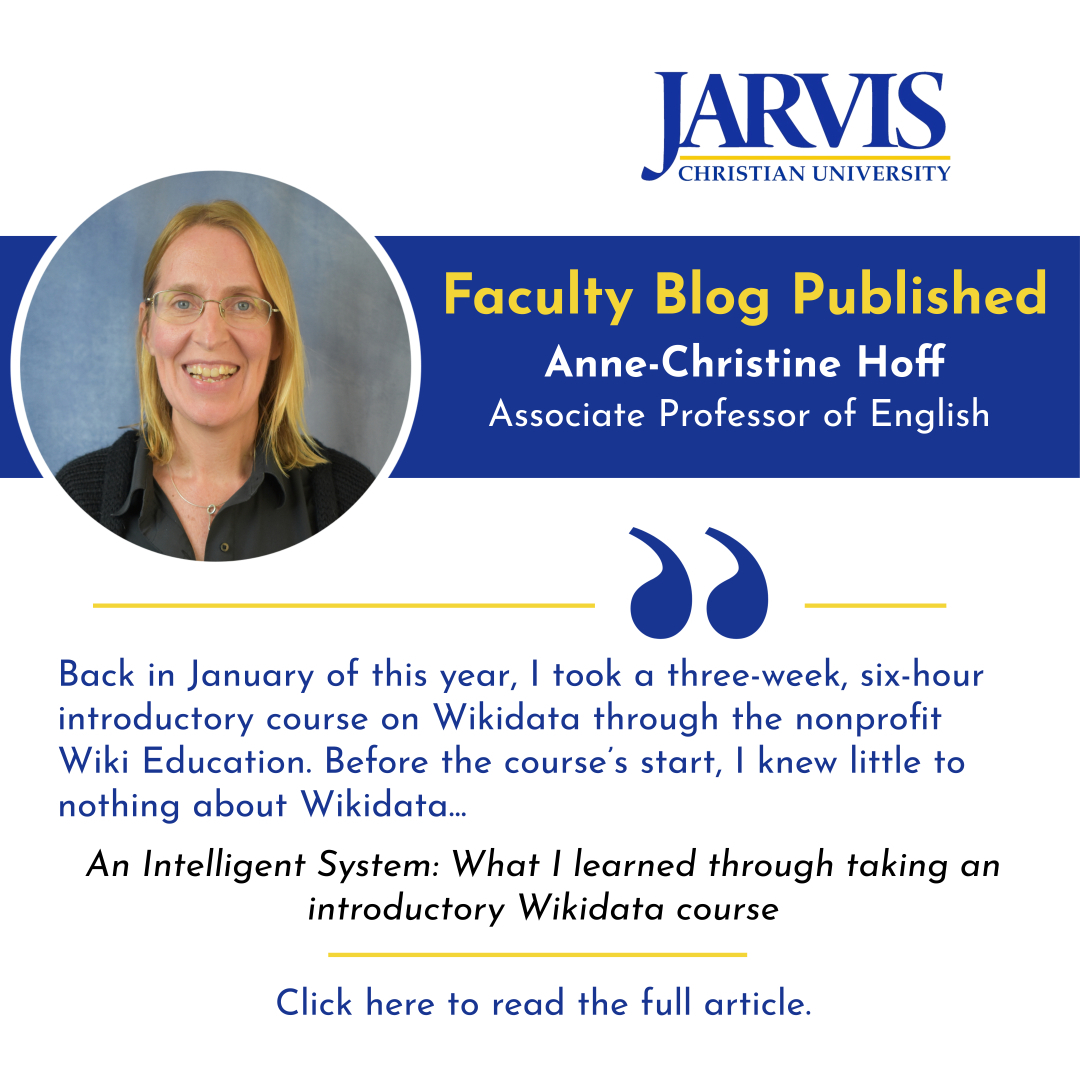Jarvis Christian University associate professor of English Dr. Anne-Christine Hoff recently wrote a blog post requested by the nonprofit Wiki Education about her experience taking an introductory Wikidata course. Wiki Education is a bridge between academia and Wikipedia, a lively academy where the spirit of learning thrives as educators and students gather to harness the power of Wikipedia for education.
While most people know about Wikipedia as the world’s largest encyclopedia full of crowd-sourced and cited information that is accessible for all to share, what makes Wikidata different is that it is not just a database for Wikipedia and other Wikimedia projects.
Instead, Wikidata acts as a central storage for structured research data that can be read and edited by both humans and machines, and is available immediately globally in the multiple languages used by Wikidata. It stores facts and figures in a structured format that computers understand, linking information across languages and projects. If Wikipedia is a sprawling library, then Wikidata is its meticulously organized index, connecting articles to data points with precision and clarity.
“The crux of Wikidata’s intelligence comes from its ability to understand data in a relational way,” Hoff writes. She explains that users can create structured knowledge about their own cultures, histories and literature in their own languages from all over the world into this self-structuring repository of data, linking local metadata with a network of global metadata in multiple languages.
Contributing to Wikidata is not just about reading, but writing, editing, and collaborating to improve the world’s largest encyclopedia. Inquisitive minds learn not only from books but from the act of creating knowledge themselves, writing articles, correcting errors, and adding citations, becoming guardians of accurate information in the digital age.
Essentially, Wikipedia, Wiki Education, and Wikidata are interconnected but distinct facets of the same mission—to democratize knowledge.
- Wikipedia serves as the front-facing encyclopedia, accessible to anyone with an internet connection.
- Wiki Education empowers learners to actively contribute to Wikipedia’s growth, fostering critical thinking and digital literacy.
- Wikidata provides the backbone, ensuring that information is not only accessible but also interoperable across the web.
All students can learn the art of editing and collaborate with classmates to improve content of articles, citing reliable sources and adding missing details. For an example, as a student researches ancient civilizations, she can find Wikidata’s structured data on archaeological sites, timelines, and cultural artifacts related to her research.
Wikidata complements Wikipedia, enriching articles with precise information that is easily verifiable. A voyage into Wikipedia, Wiki Education, and Wikidata can teach a student more than just facts; it can teach the value of shared knowledge and responsible digital citizenship. Together, these realms form a vibrant ecosystem where learning, collaboration, and information integrity flourish—a testament to the boundless possibilities of the internet in the hands of curious minds. Read Dr. Hoff’s blog post, An Intelligent System: What I learned through taking an introductory Wikidata course – Wiki Education

